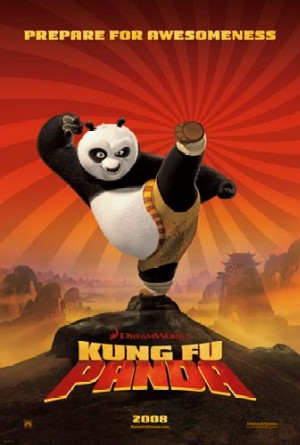
I’ve seen meaning to make this post since I got around to finally watching Kung Fu Panda a couple of weeks ago but didn’t find the time. It’s an awesome film as its poster claims, but more importantly, it’s an awesome kung fu film, easily the best one of the year, and it was made entirely in the U.S. This makes it a great example of a point that I’ve been wanting to make. One of my pet peeves is that whenever some Chinese patriot tries to make a case for Chinese nationalism, the issue of Chinese culture and its 5,000 history invariably crops up. This is annoying for two reasons.
One, it seems to imply that Chinese culture and history is somehow better, or more special, than that of any other solely by reason of its longevity. As this old article explains, that’s a poor argument. Chinese culture is indeed worthy of attention and study, but then nearly every corner of the Earth is just as steeped in history. Chinese apologists try to make the argument that Chinese identity is unique in that it alone of all other cultural identities in the world can trace an unbroken lineage up to 5,000 years back, but as the article also explains, that relies on a rather slippery definition of what China, and what being Chinese, means.